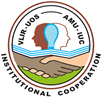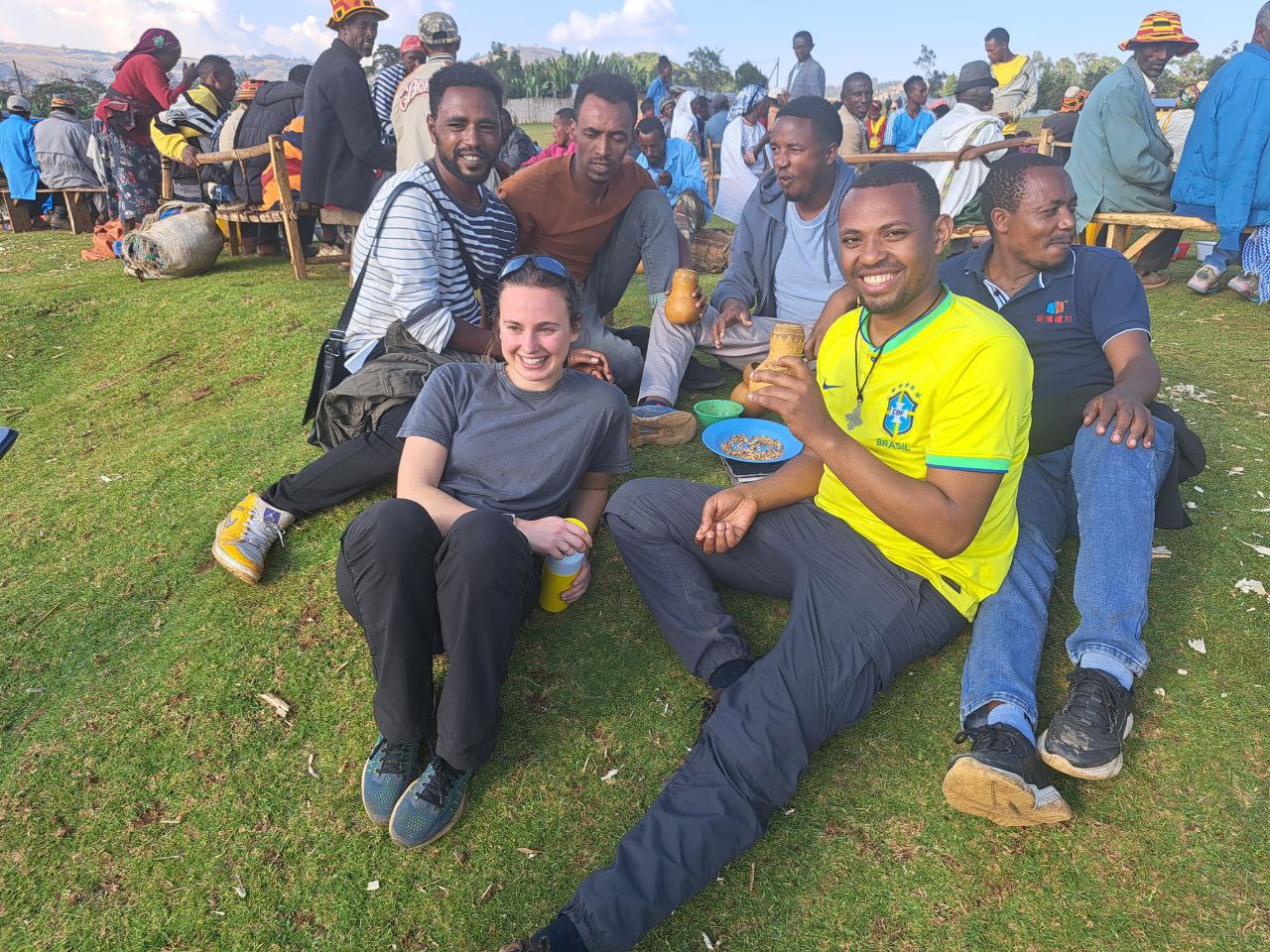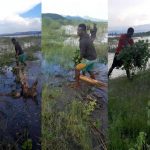Melaku Haile Gebremedhin, a PhD student within AMU IUC Project’s Research sub-project 2, has embarked on a transformative journey at the Faculty of Bioscience Engineering at KU Leuven, Belgium. He earned his bachelor’s and master’s degrees from Arba Minch University, where he also gained four years of experience in teaching, research, and community service.
Currently, Melaku is an integral part of the Agriculture and Rural Development Economics research group at KU Leuven, where his PhD research focuses on the intricate dynamics of “Understanding land-and-migration-based rural livelihoods in the South Ethiopia region”, under the supervision of Prof. Miet Maertens and Prof. Liesbet Vranken.
Melaku is delighted to update us on the progress of his data collection effort aimed at rural livelihoods in Southern Ethiopia. Collaborating with a dedicated team of researchers and enumerators, Melaku spearheaded an extensive survey covering over 800 households across the Gamo, Konso, and Gardula Zones between January 10 and March 10, 2024.
“Of the 850 households surveyed, 620 participants were male and 230 were female, ensuring that the collected data encompasses the perspectives and experiences of both genders, thereby enhancing our comprehensive understanding of rural livelihoods in the Southern Ethiopian Rift Valley.“
Their survey, which builds upon two previous rounds of household data collection, offers valuable insights into critical aspects of rural livelihood, including land ownership and investment, agricultural production, risk and shocks, rural labor mobility and remittances, food and energy security, and women’s empowerment.
“The pursuit of research data collection in rural areas is no easy feat”, added Mr. Melaku. “It demands a collective effort marked by dedication and perseverance from researchers, supervisors, and enumerators”. Navigating through remote and rugged terrain, the researchers faced the daunting task of randomly selecting sample households scattered across vast distances.
Furthermore, basic necessities such as food, accommodation, and electricity for charging devices were often scarce, requiring meticulous planning and resourcefulness from the research team. Additionally, with household heads deeply engrossed in fieldwork throughout the day, reaching them for surveys proved to be a logistical puzzle, particularly after early morning hours.
To address these obstacles, the research team embarked on lengthy walks to reach sample households, forged partnerships with local agriculture offices, and meticulously prepared for each day’s work. Early morning visits ensured they could reach household heads before they immersed themselves in agricultural tasks. At this juncture, the researchers extend their heartfelt gratitude to their drivers, whose invaluable assistance proved indispensable throughout their endeavors.
Finally, Mr. Melaku has expressed profound gratitude to various institutions, offices, and individuals, whose collective efforts played a pivotal role in achieving the project’s objectives. Special gratitude is also extended to RSP2 project leaders, PSU, district and village agriculture officers, and AMU-IUC Project for their unwavering support.


